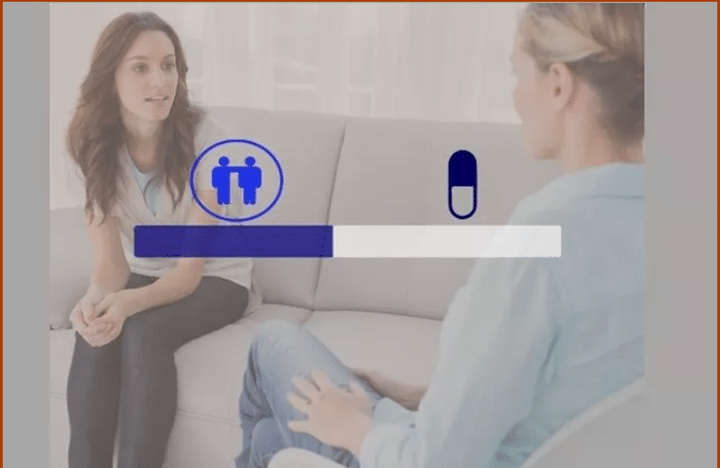The BIG Question - Medications Or Counseling In Mental Health Management?
I have mulled over this topic for quite some time now, and the question that comes to mind for a medical doctor who is trained in psychiatry is "Why do we even have to talk about this topic"? However, I realize after being in the field of psychiatry for more than 12 years now, it is relevant to explain this in lay person's language because of the huge stigma that goes with the subject of mental health.
It is important to note the difference or similarities of Medications or Counseling in Mental health or as such General Health care.
Counseling is an art, whereas Medicine is as much of an art as it is about science.
Both are ways of approach towards a patient that involves speaking with, building rapport and empathizing with the patient's condition.
However, while counseling involves different approaches by way of talk therapy using the mind as the subject and the various processes of the mind such as behavior, intellect, memory, insight, understanding, etc, a psychiatrist would use medications in addition or in isolation depending on the time constraints that the patient load would impose.
While, we know that medications are effective in the treatment of mental health conditions, there is evidence in the scientific world that talk therapy or counseling is as effective for some mental health conditions as medications, if not better.
Depression and anxiety are two such mental health conditions. Medications while being helpful in the above conditions, counseling or psychotherapy is as effective and it has been proven that the combination of therapy and medication is more effective that either one of them alone.
Some do however argue that psychotherapy is pseudoscience.
Let us examine as to which ones are on the brink and which kinds of therapy are not useful at all.
Psychoanalysis, sometimes dreams analysis and narco analysis, childhood experience analysis are considered as having poor to no evidence in the literature, as being effective treatments for any mental health condition.
The evidence for placebo or a sugar pill being more effective or as effective as the above kinds of therapies exists in the literature.
However, these kinds of studies are very difficult to do as each of these therapies are different in their own regard and maybe even come across as different to different individuals.
One is allowed to form their own opinion based on their own experience with regards to these therapies.
Mental health is characterized by a sense of purpose or a sense of coherence in the widely chaotic world of medications or psychotherapies.
We need to structure either therapy to make sense of this chaos - give some method to the madness.
Flexibility and resiliency can be developed only with exposure. Exposure to stress or difficult situations only teaches the human mind as to how to overcome these stresses or difficult situations.
These are ingrained in our DNA and passed on to the next generation. While we know that humans are because of our DNA we also know - now - that life experiences also contribute to the DNA.
This novel method of thinking is known as "epigenetics". Therefore, hardiness, although largely genetic can also be developed by exposure to stress and passed on to the next generation. This would give new meaning to the phrase - "survival of the fittest".
There is evidence in large randomized controlled trials (RCTs) in the scientific research world regarding the efficacy of many psychotropic medications i.e. the medications used in treating mental health conditions.
I also believe that there is a lot of use of these medications in routine use, having used them with patients with mental health disorders for the many years that I have practiced psychiatry as well as being a resident trainee in post graduate training programs in the United States.
However, there are cultural variables in the acceptance of these medications. The cultural variables are explained by the fact that mental health was in general, i.e. all over the world, not a very well accepted pathology. In a sense, mental health was not important till it was recognized most recently to be treatable.
In the past mental health was treated as a curse or as a social malaise and people were institutionalized in penitentiaries or asylums and sometimes even put to the guillotine. However, this fact has fast changed with the onset of scientific evidence for the existence of benefits with the use of psycho-therapeutic medications.
Now that we have concluded that therapy, either talk therapy or medication therapy or a combination of both, is helpful in depression and anxiety we need to know a bit about the medications that are given by us psychiatrists to patients.
If you are prescribed a medication, be sure that you:
-
Tell the doctor all medications - either from classical medicine or otherwise and vitamin supplements you are already on.
-
Remind your doctor about allergies and problems you have had with past use of medicines.
-
Understand how to take the medicine before you start using it and take your medicine as instructed.
-
Don't take medicines prescribed for another person or give yours to someone else.
-
Call your doctor right away if you have any problems with your medicine or if you are worried that it might be doing more harm than good. Your doctor may be able to adjust the dose or change your prescription to a different one that may work better for you.
Inform you Doctor about medications and therapy you have taken
Lastly, when visiting with your psychiatrist or psychotherapist, kindly let them know that you are using only medications or only therapy or both as the case may be. It sometimes is the case that when one is on therapy for certain conditions the other kind of therapy may not be needed.
I also believe that medications are used in many cases to tide over an acute crisis situation and may be needed only for a short term in contradiction to the popular notion that medications for mental health conditions are used for a lifetime and that they cause side effects and are "harmful" for the body. This is NOT true.
One should weigh the risks versus the benefits of the medications and only then mull over the decision to take them or leave them. This is true with psychotherapy or talk therapy or counseling as well. It may be best to consult your primary health caregiver for deciding what may be best for you.



+1.svg)
